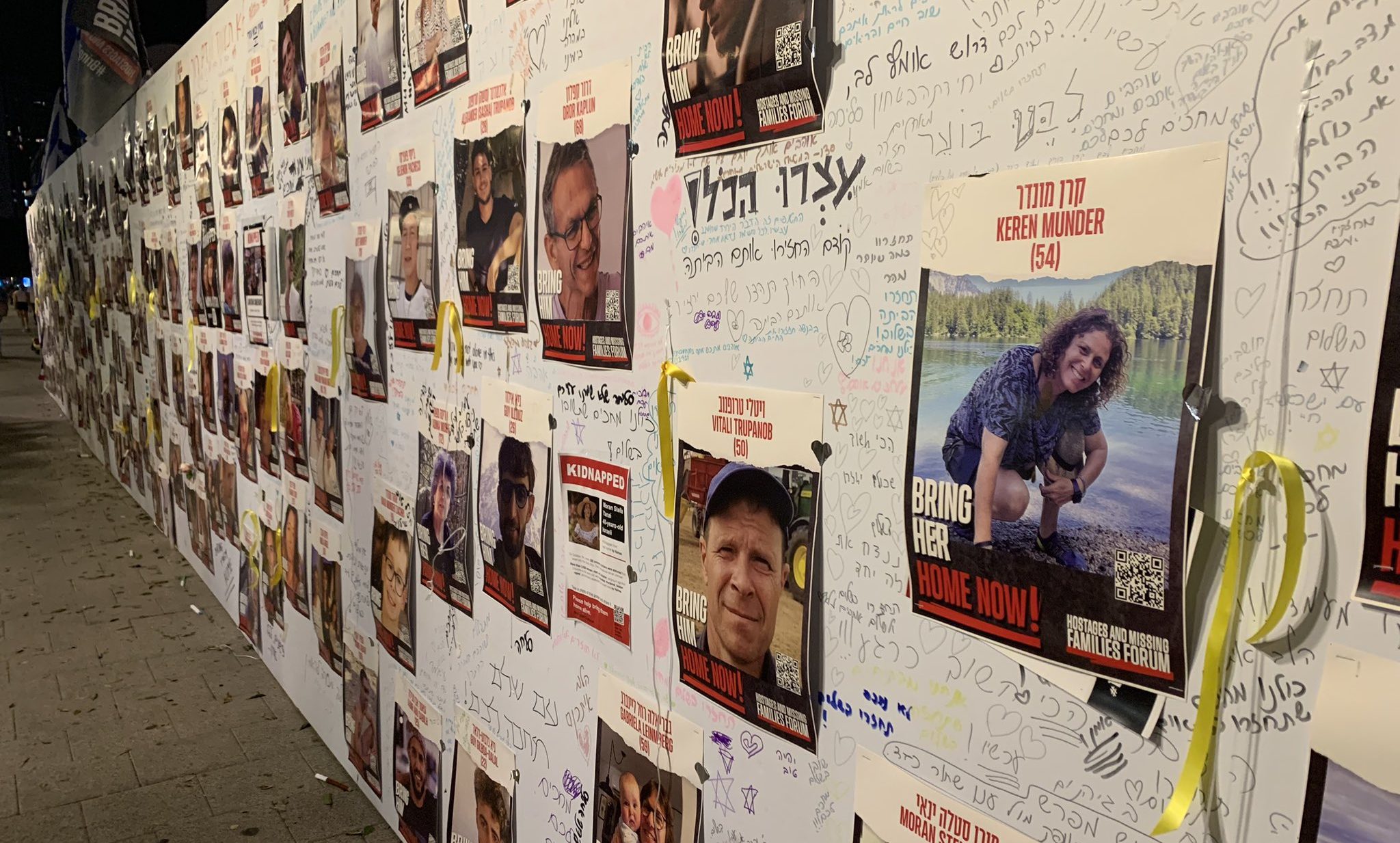Hamas says that nearly 50 hostages have died from the ongoing Israeli airstrikes on Gaza.
A representative for Israeli families of captives held by Hamas has called on Prime Minister Benjamin Netanyahu to commit to a full prisoner exchange, asserting that such a deal was “feasible” and would have “wide national support.”
“As far as the families are concerned, a deal of a return of our family members immediately in the framework of ‘all for all’ is feasible, and there will be wide national support for this,” said MeIrav Gonen, the representative for the families, reported Al Jazeera.
Ifat Kalderon, a family member of one of the captives, also openly supported the Palestinian prisoner release, stating: “Take them, we don’t need them here. I want my family and all the hostages to come back home, they are citizens, they are not soldiers.”
The appeal came during a hastily organised meeting on Saturday that was organised after the families threatened street protests amid fears that military operations against Gaza were putting their loved ones in danger.
As Netanyahu met with the families, Hamas issued a declaration stating that a release of all Palestinian prisoners held in Israeli jails was a precondition for the freedom of captives seized by Hamas fighters on October 7.
However, Hamas said around 50 captives have been killed from the ongoing Israeli airstrikes on Gaza, which have intensified in recent days.
“We are ready to conduct an immediate prisoner exchange deal that includes the release of all Palestinian prisoners from Israeli jails in exchange for all prisoners held by the Palestinian resistance,” said Yahya Sinwar, the leader of Hamas in the Gaza Strip.
Thousands of Palestinians are currently in 19 Israeli prisons, as well as one in the occupied West Bank. Currently, Israel imprisons around 1,264 Palestinian administrative detainees, 5,200 political prisoners, 33 women, and 170 children.
Despite the urgent pleas, Netanyahu did not commit to any deal, stating instead: “We will exhaust every possibility to bring them home,” according to a video released by his office.
Demonstrations advocating for the captives’ families took place across several Israeli cities, including Tel Aviv, Haifa, Atlit, Caesarea, Be’er Sheva, and Eilat.
“None of the war cabinet bothered to meet with the families to explain one thing: whether the ground operation endangers the well-being of the 229 hostages,” lamented the Hostages and Missing Families Forum in a statement.
Tel Aviv has used the Palestinian resistance operation of 7 October to justify its massacres in Gaza. The unprecedented Hamas attack on Israel led to the capture of more than 200 Israeli captives, all of whom were believed to be taken into Gaza.
Defence Minister Yoav Gallant, who later joined Netanyahu in the press conference, appeared to opt for more military force instead.
“The more military pressure, the more firepower and the more we strike Hamas – the greater our chances are to bring it to a place where it will agree to a solution that will allow the return of your loved ones,” he commented.
Inside sources disclosed to Al Jazeera that Qatari-mediated negotiations between Israel and Hamas for a ceasefire and prisoner swap had been progressing but hit a snag due to Israel’s increased military activities.
Heavyweight diplomatic power Qatar, which hosts a Hamas political bureau, has been at the forefront of de-escalation efforts and talks to release the captives.
On 20 October, Qatar’s diplomatic role proved to be successful with the release of two American captives, identified as Judith Raanan and Natalie Raanan—a mother and a daughter, from Hamas.
Then on Monday, Qatar and Egypt pushed for the release of two elderly women from Hamas, both identified as 79-year old Nurit Yitzhak and 85-year-old Yocheved Lifshitz.
Despite the breakthrough in the talks, the Gulf state has stressed that non-stop escalations have made its mediation much more difficult.
In an interview with Sky News on Thursday, Qatar’s Minister of State for Foreign Affairs Dr. Mohammed Al Khulaifi provided an insight into Doha’s latest diplomatic tussle.
“With this violence increasing everyday, with this bombing continuous everyday our task has become even more difficult. But despite that, we remain hopeful, we remain committed to our role of reaching out to the parties with the aim of reaching a positive result,” he said.
Mounting pressure on Netanyahu comes after Israel waged on its most violent nights in the Gaza Strip, intensifying airstrikes and cutting off all forms of communication Friday.
By Sunday morning, local reporters noted a gradual resumption of telephone and internet services.
Gaza’s government media office disclosed last week that Israel has dropped an alarming 12,000 tonnes of explosives on the Strip since the conflict began, a weight comparable to the nuclear bomb the United States deployed on Hiroshima in 1945.
In the span of 23 days, Israel’s attacks killed over 8,000 people in Gaza, including 3,195 children. Additionally, more than one million residents have been internally displaced, with the majority seeking refuge in hospitals and educational facilities.







